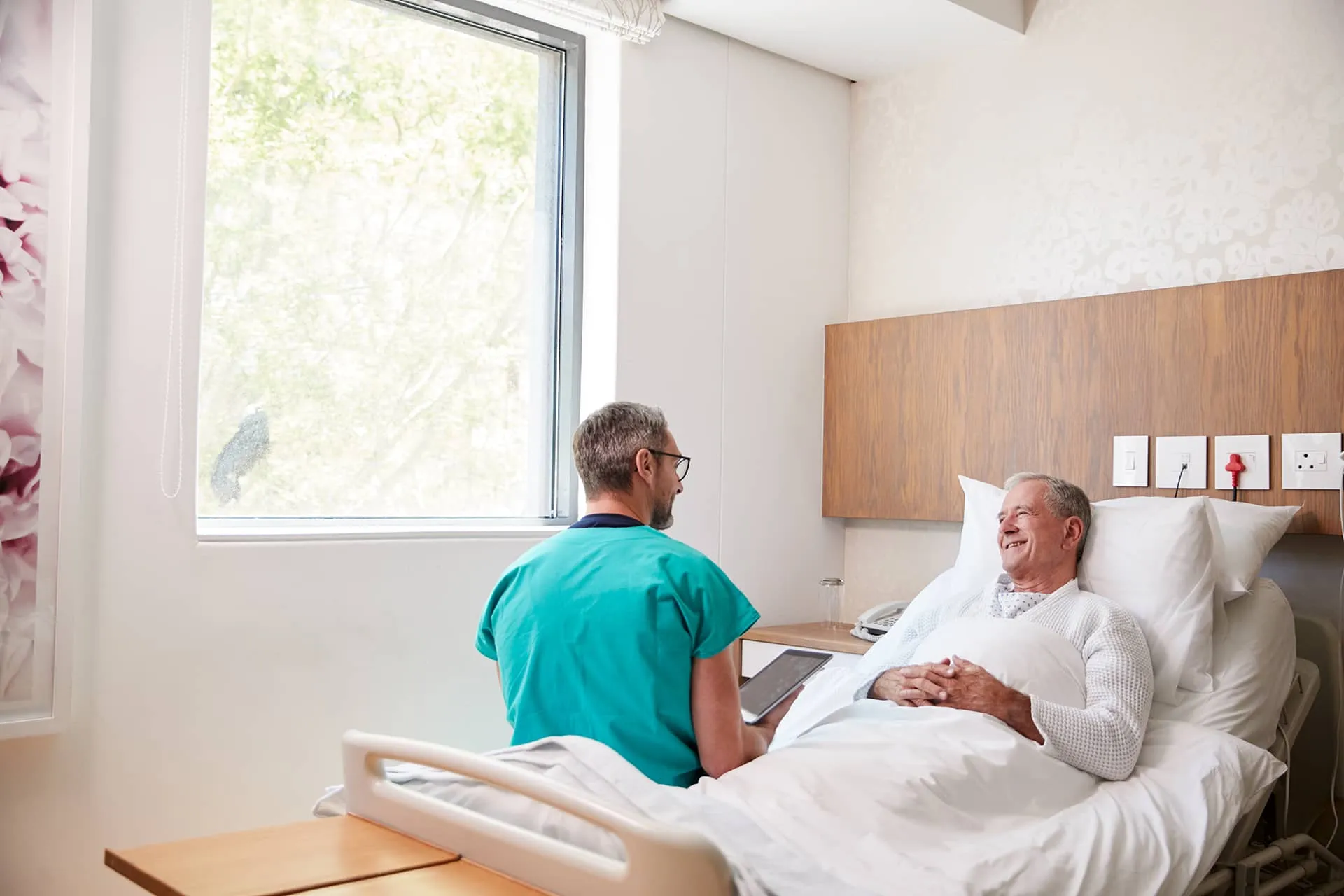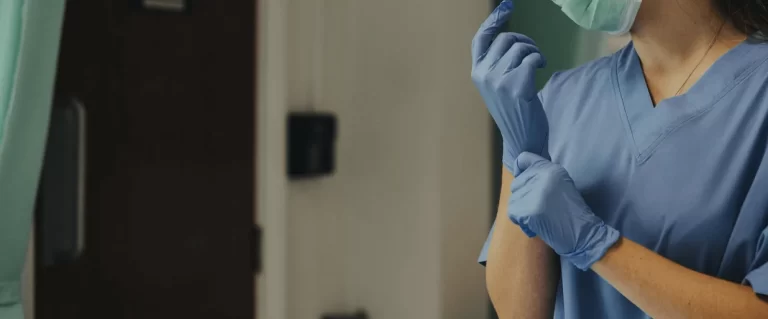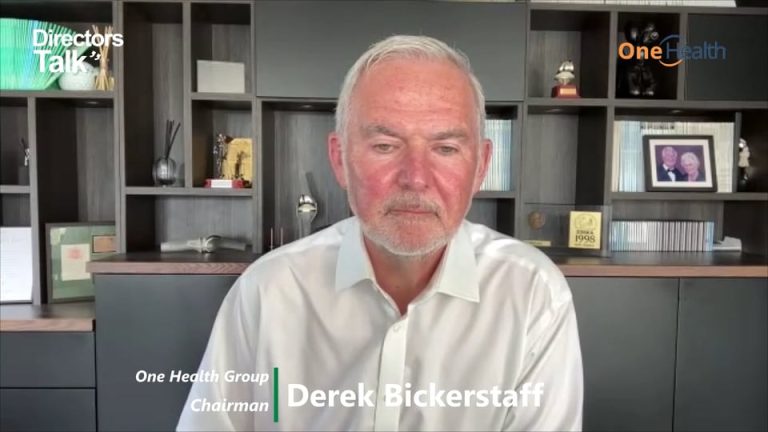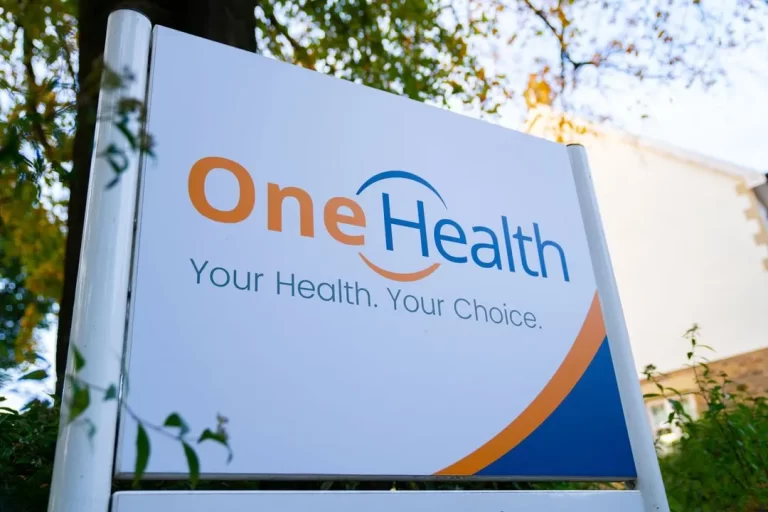One Health Group plc (AQSE:OHGR) Chairman Derek Bickerstaff caught up with DirectorsTalk for an exclusive interview to discuss what attracts surgeons to the Group, development of surgical hubs, promoting awareness of patient choice, NHS future priorities, its relationship with the NHS and Labour’s approach to independent providers in NHS care delivery.
Q1: Derek, you have a 20-year successful track record in providing NHS funded medical procedures, but what do you think attracts consultant surgeons to work with One Health Group?
A1: We have just over 80 surgeons working with us now, we are growing our surgical cohort by about 15% a year, so we’re doing something right.
I think the main thing that we can offer surgeons is that we basically offer them full clinics and full operating lists. We take all the practice administration away from them, all the registration of patients, the booking of patients, the booking of theatres, etc., that’s all managed by us. So, the surgeons do what surgeons are good at, which is seeing patients and operating on patients.
In addition, we provide all the administrations, so it’s a paperless administration, so they’re fully supported but also, critically, they are supported by their colleagues. So, as I said, we have over 80 surgeons and they’re all subdivided into their subspecialties so for instance, we may have five or six knee surgeons at present. So, if you have a difficult clinical problem, you’ve still got the support of your colleagues around you.
We also have a very robust audit programme, which all our surgeons are involved in. That involves peer review of the colleagues’ complications and practice, but we also have third-party review as well so the surgeons are assured. This is very important, because when you’re in sole private practice and single practice on your own, you’re somewhat exposed, but with our system, we have a very robust programme, as I say, and so we have good objective analysis, we have good figures on the types of cases, the number of cases, the complications that they have. So, in the event of there being an untoward incident, then we have a lot of figures to be able to support our surgeons.
Also, we operate in over 30 clinics now in about seven operating facilities, and these are all high-quality facilities, they’re all CQC registered. So, all our surgeons have a good work practice, they’re in nice facilities and well-supported facilities.
Importantly, we pay our surgeons well, and we pay them promptly, but in addition to that, they also benefit from bonuses, from profit share, and also with share options. We have 22 of our surgeons now, our shareholders, 26 of them originally were option holders, and so there’s 4 still remaining with their options, but we expect them to take up their options soon. None of our surgeons have sold any of their shares so that’s obviously a good message from them that they are supporting us.
I think also very importantly, our surgeons are not employed by us, they’re all subcontracted. So, they have the freedom to give us as much or as little time as they wish, and they can alter the time that they provide to us depending upon their personal circumstances, and some might wish to work more because they wish to earn more money and others less. So, they have the ability to turn up and turn down the amount of work they do. Again, something which isn’t available if you’re in a single run private practice.
Q2: How do you plan to develop surgical hubs to support regional demand that’s unmet by the NHS or other providers in selected geographies?
A2: We work over a really wide geographic area now in the North of England and the Midlands, and we concentrate on the more rural, underprivileged areas where there’s poor provision of NHS services, we tend to avoid the main metropolitan areas.
So, we have a good idea now of the referral patterns within this area, and there are some areas which are neither supported by NHS facilities nor independent sector hospital facilities that may do NHS work. We already have a very good idea of where the patients are moving to and from.
Our plan is to open these hubs in these under-resourced areas, we know exactly where they are, we know how far the patients have to travel both for outpatients and for inpatient care. So, our idea is we will drop in one of these surgical hubs into these areas, and because we already have our referral patterns in these areas, we will be able to pre-book our patients into the surgical hubs.
So, in advancement of the hub opening, we will also already be pre-booking patients in so we’re not opening a facility and waiting for the patients to come, we’re opening the facility in an area where we already know there is demand, and through our own work, we can actually book these patients into the hospital.
Also the type of hospital that we’ll be opening, I say hospital, and I shouldn’t say hospital, it’s a surgical hub, it’s a surgical facility, because we do all our outpatient work out in the community, we don’t need to have an outpatient facility at the surgical hub. We don’t need to have diagnostics there.
This is going to be a highly efficient, highly productive surgical hub, really just concentrating on hip replacement, knee replacement, and the simplest spinal procedures. All the rest of our work is done out of the community so we’re able to control the capital costs of these surgical hubs, which we believe we’ll be able to fund through cash, we’re very cash generative as an organisation, and also some debt.
Q3: How do you help the NHS promote awareness on patient choice, encouraging the use of independent providers to reduce the stress on the system?
A3: Well, ironically, patient choice is about the best kept secret in the NHS. It’s been part of the constitution of the NHS for about 50 years, but many people are still unaware that it is available, and actually it’s the NHS which is in the best position to promote this, and indeed they are recently seeing the benefits of getting the patients to choose where they want to be able to be treated to take the stress off of the NHS hospitals.
So, there has recently been more of a push from the NHS, so it’s been pushed on print recently, and there’s due to be a forthcoming TV and radio announcement. They’re also pushing it through GP surgeries and on social media. So, the NHS is now doing their bit to do it.
We, on our side, use our website and we use social media to promote patient choice, and we’ve had pretty good traction with some of our Facebook groups. On our website, we have a downloadable document which actually states that patients’ rights under the NHS constitution, which they can take along to their GP, and to say that I want to exercise my choice on where my treatment takes place.
We also lobby key individuals within the commissioning groups, we work with the independent health provider network, we support them and work with them with the promotion of patient choice. We also work with GPs and also administrators within GPs, so the practice managers are the people who will often be or should be offering choice.
So, we have a very wide net where we try to influence it, but we’re finding that the public are increasingly becoming more and more aware of their legal rights.
Q4: From your perspective as an independent provider to the NHS, what do you think the NHS future priorities should be, and how do you see your relationship with the NHS developing in the years ahead?
A4: The NHS is a huge and complex structure working in every aspect of healthcare and also social care so it is not easy to change. There isn’t one silver bullet, one single thing which will alter the NHS but I think there is a recognition that the funding of the NHS, but I think also more critically, the organisational structure of the NHS needs to change. This has really been promoted by both the main parliamentary parties.
It’s going to take a long time, and there are many different facets, different solutions will be found for different aspects of this huge and complex structure. It’s a generational change, it won’t change over one parliamentary cycle, and I think this is now well recognised.
One area of the NHS which is struggling is elective surgery, and that’s hit the headlines over recent months and years with the completely unacceptable waiting time now for surgery, which is standing at something like 7.6 million, and this is where our business is active, we are a company that provides elective surgery for the NHS.
So, one simple solution, and one which really has been promoted by both surgical parties, is the independent sector using its capacity to help the NHS to deal with this. Not only its present capacity, but we think the NHS should be providing, or should be promoting, the independent sector such that they feel confident that they can bring capacity to, so they can increase the capacity that they offer to the NHS.
This is really our strategy. We grow organically, both offering our outpatient capacity and also our inpatient capacity to the NHS and as we’ve covered earlier, where needed, we will drop in one of our surgical hubs. So this falls directly into what the group is about.
The NHS, however, will remain in control of the purse strings because they will set how much is being paid, and it’s the amount that they will pay their own NHS hospitals. They keep control of quality, and if they promote patient choice, they can allow the public to choose where they would like to be seen and who they would like to treat them.
So, that’s one, the elective surgery is just one small section of the NHS. The NHS then can concentrate on its other demands such as primary care, A&E, mental health, cancer treatment, and there are many, many, many other facets of the NHS which they would then be free to be able to address.
Q5: Do you ever see the Group changing its reliance on NHS funded work?
A5: Well, we are set up to help support the NHS in its treatment but I think many commentators now see that the reforms that are required on the NHS so that we will be moving more towards the European model, where there is a blaring of the private and the state hospitals offering health. So, both hospitals in Europe support state funded care, insurance funded care, or self-funded care.
We also believe that the private medical insurance market will change, particularly with procedures which form the bulk of the waiting list problems that we have at the minute. So, it will be a much more restricted private offering, but it will be much more wider because it’s much, much, much cheaper and so this would then be taken up, we believe, by employers.
So, there will be an increase in private insured work, but there will always be a safety net provided by the NHS such that care is free at the point of delivery, and that’s something that we are very, very, very clear on. We’re a company set up to support the NHS, and the ability to provide care, free at the point of delivery, is extremely important to us.
In that regard, I can see One Health Group being part of a multi-funded healthcare market in the future, but Othe Group will not become yet another independent sector hospital group which is primarily focused at the private insured market. I think the private insured market will come to us rather than us going to them.
Q6: Finally, with the general election looming, how do you view the Labour Party’s approach to independent provision of certain healthcare services?
A6: To be honest, we look upon this very positively. I’m an orthopaedic surgeon, and in my 30 years as an orthopaedic surgeon, the lowest the waiting lists ever became was during the Tony Blair Labour administration.
And to do that, Labour basically opened up the elective care within the NHS to the independent sector, they promoted the Any Qualified Provider contract, which allowed access through a framework to the NHS, which we are a part of now. They also opened up the growth of the independent sector treatment centres, whereby the independent sector put the money up to increase the capacity offered to the National Health Service, and they also introduced patient choice.
So, Labour have done more than any other administration recently with regards to trying to try to reform the NHS and particularly the elective care sector, which is where we lie.
So, Wes Streeting can’t have been clearer. There have been many pronouncements, both on TV and in print, that Wes Streeting will be looking to the independent sector to help solve the problem of the waiting lists. To be honest, if the Labour Party were to do what we did 20 years ago, which, as I’ve explained, was contracting the independent sector to do the work, the encouragement of the independent sector to increase the surgical capacity and promoting patient choice, I believe that this problem could be solved, which would allow the Labour Party to concentrate on the other areas of the NHS, which I’ve detailed earlier.
So, we’re very positive if a Labour administration should get in, equally, if a Conservative administration would get in, we’re equally positive that we could work with them.










































